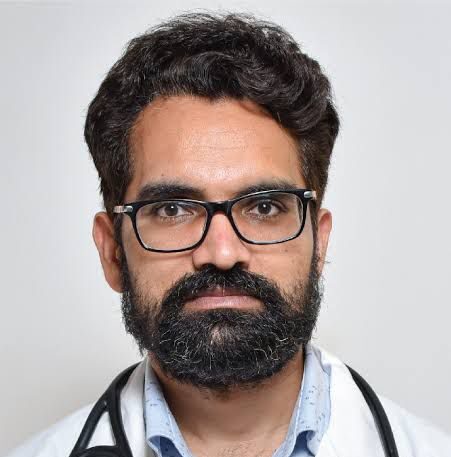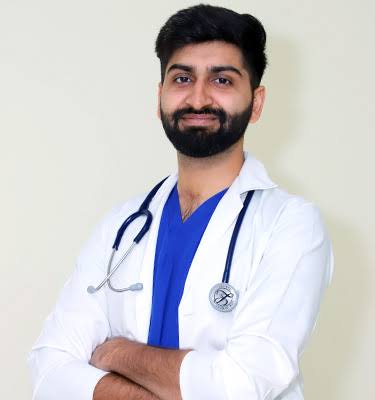
Breast Oncosurgery
Breast oncosurgery, also known as breast cancer surgery or surgical oncology, is a specialized field within oncology that focuses on the surgical management of breast cancer. It plays a critical role in the comprehensive treatment of breast cancer patients, often complementing other modalities such as chemotherapy, radiation therapy, hormone therapy, and targeted therapy. Breast oncosurgeons are highly trained specialists who perform various surgical procedures aimed at removing cancerous tissue, preventing cancer recurrence, and preserving the overall health and well-being of patients.
Importance of Breast Oncosurgery:
Breast cancer is one of the most common cancers affecting women worldwide, with early detection and timely treatment being key factors in improving outcomes. Breast oncosurgery is crucial in the management of breast cancer for several reasons:
- Tumor Removal: The primary goal of breast oncosurgery is to remove the cancerous tumor from the breast while preserving as much healthy breast tissue as possible. This procedure is known as a lumpectomy or breast-conserving surgery and is often performed for early-stage breast cancers.
- Lymph Node Evaluation: Breast oncosurgeons may perform lymph node dissection or sentinel lymph node biopsy to assess whether cancer has spread to nearby lymph nodes. This information helps determine the stage of the cancer and guides further treatment decisions.
- Prevention of Recurrence: Surgical removal of the tumor and affected lymph nodes reduces the risk of cancer recurrence in the breast and nearby areas. In some cases, mastectomy (complete removal of the breast) may be recommended to achieve optimal cancer control, especially for larger tumors or certain types of breast cancer.
- Tissue Reconstruction: Breast oncosurgeons work closely with plastic surgeons to offer breast reconstruction options for women who undergo mastectomy. Reconstruction techniques may involve implants, tissue flaps, or a combination of both to restore the shape and appearance of the breast.
Types of Breast Oncosurgery:
Breast oncosurgery encompasses various procedures tailored to the individual needs of each patient:
- Lumpectomy: Also known as breast-conserving surgery, a lumpectomy involves the surgical removal of the cancerous tumor along with a margin of surrounding normal breast tissue. This approach aims to preserve the breast’s appearance and function while effectively treating early-stage breast cancer.
- Mastectomy: Mastectomy involves the complete removal of the breast tissue and may be recommended for larger tumors, multiple tumors, or certain types of breast cancer. Types of mastectomy include:
- Total Mastectomy: Removal of the entire breast tissue.
- Modified Radical Mastectomy: Removal of the breast tissue along with the axillary lymph nodes.
- Skin-Sparing Mastectomy: Preservation of the breast skin for improved cosmetic outcomes during reconstruction.
- Nipple-Sparing Mastectomy: Preservation of the nipple and areola complex, often combined with immediate reconstruction.
- Axillary Lymph Node Surgery: Breast oncosurgeons may perform axillary lymph node dissection or sentinel lymph node biopsy to evaluate lymph node involvement. Sentinel lymph node biopsy is a minimally invasive procedure that identifies the first lymph nodes where cancer is likely to spread.
- Breast Reconstruction: Following mastectomy, breast reconstruction techniques may be offered to restore the breast’s shape and contour. Reconstruction options include implant-based reconstruction, autologous tissue reconstruction (using the patient’s own tissue), or a combination approach.
Advanced Techniques and Innovations:
Advancements in breast oncosurgery have led to the development of innovative techniques and technologies to improve surgical outcomes and patient satisfaction:
- Oncoplastic Surgery: This approach combines cancer removal with plastic surgery techniques to achieve optimal cosmetic results while maintaining oncological safety. Oncoplastic techniques may involve reshaping the remaining breast tissue, adjusting the nipple position, and achieving symmetrical outcomes.
- Minimally Invasive Surgery: Minimally invasive techniques such as laparoscopic or robotic-assisted surgery offer smaller incisions, reduced postoperative pain, faster recovery, and improved cosmetic results compared to traditional open surgery.
- Intraoperative Margin Assessment: Advanced imaging and intraoperative tools allow surgeons to assess surgical margins during the procedure, ensuring adequate tumor removal while minimizing the need for re-excision surgeries.
- Targeted Therapies: In conjunction with surgery, targeted therapies such as HER2-targeted drugs and hormonal therapies are used to treat specific types of breast cancer and reduce the risk of recurrence.
Comprehensive Care and Multidisciplinary Approach:
Breast oncosurgery is part of a multidisciplinary approach to breast cancer care, involving collaboration among various healthcare professionals, including medical oncologists, radiation oncologists, pathologists, radiologists, genetic counselors, and oncology nurses. This team-based approach ensures that patients receive comprehensive, individualized care tailored to their specific diagnosis, stage of cancer, overall health, and personal preferences.
Preoperative Evaluation and Postoperative Care:
Before breast oncosurgery, patients undergo a thorough preoperative evaluation, which may include imaging studies (mammography, ultrasound, MRI), blood tests, and cardiac assessments to ensure surgical readiness. Postoperatively, patients receive detailed instructions for wound care, pain management, activity restrictions, and follow-up appointments.
Conclusion:
Breast oncosurgery plays a pivotal role in the multidisciplinary management of breast cancer, offering effective treatment options tailored to each patient’s needs. MET Hospital provides excellent breast oncosurgery treatment and care. Our highly skilled team is committed to providing exceptional care for neurological and trauma-related disorders. Count on us for specialized, modern medical care. Your health is our first priority at MET Hospital.
Departments
EXCELLENTBased on 126 reviews
 Saurabh Pandit2024-10-16My wife was admitted in case of emergency because of datura poisoning. When she was admitted, she was suffering from a high fever, dizziness, and itching all over her body. But thanks to the MET hospital and team, now she is fine and conscious. The staff of the hospital is professional; they treated me so well. Special thanks to Mr. Deepak; he also understands our financial condition and regards us with a special discount. Thanks, Met Hospital and team. Thanks a lot for your help.
Saurabh Pandit2024-10-16My wife was admitted in case of emergency because of datura poisoning. When she was admitted, she was suffering from a high fever, dizziness, and itching all over her body. But thanks to the MET hospital and team, now she is fine and conscious. The staff of the hospital is professional; they treated me so well. Special thanks to Mr. Deepak; he also understands our financial condition and regards us with a special discount. Thanks, Met Hospital and team. Thanks a lot for your help. Chandan Chauhan2024-10-10Best hospital best dr. And diagnosis and treatment all nursing staff behavior is best Best food Mr. Anup nursing staff very best staff All staff very best
Chandan Chauhan2024-10-10Best hospital best dr. And diagnosis and treatment all nursing staff behavior is best Best food Mr. Anup nursing staff very best staff All staff very best AKASH KUMAR2024-10-02I have recently visited at MET hospital because of high fever 🤒 and body pain. Know I am fit and fine because of Very helpful and supportive nursing staff and doctor. You can get your health care at reasonable price here. I would highly recommend MET hospital 🏥
AKASH KUMAR2024-10-02I have recently visited at MET hospital because of high fever 🤒 and body pain. Know I am fit and fine because of Very helpful and supportive nursing staff and doctor. You can get your health care at reasonable price here. I would highly recommend MET hospital 🏥 Harsh Kumar2024-10-02The staff at MET hospital has been extremely professional and cooperative. Every time have visited the hospital have been given good service . One staff Mr Anup stands apart as he is well versed with his job and does his work professionally. His behaviour towards patients is extremely courteous and he always treats them with lots of respect and smile. Mr Anup always tries to bring a smile on the patients face even when things are difficult. He is really a great asset to the MET hospital.
Harsh Kumar2024-10-02The staff at MET hospital has been extremely professional and cooperative. Every time have visited the hospital have been given good service . One staff Mr Anup stands apart as he is well versed with his job and does his work professionally. His behaviour towards patients is extremely courteous and he always treats them with lots of respect and smile. Mr Anup always tries to bring a smile on the patients face even when things are difficult. He is really a great asset to the MET hospital.

















